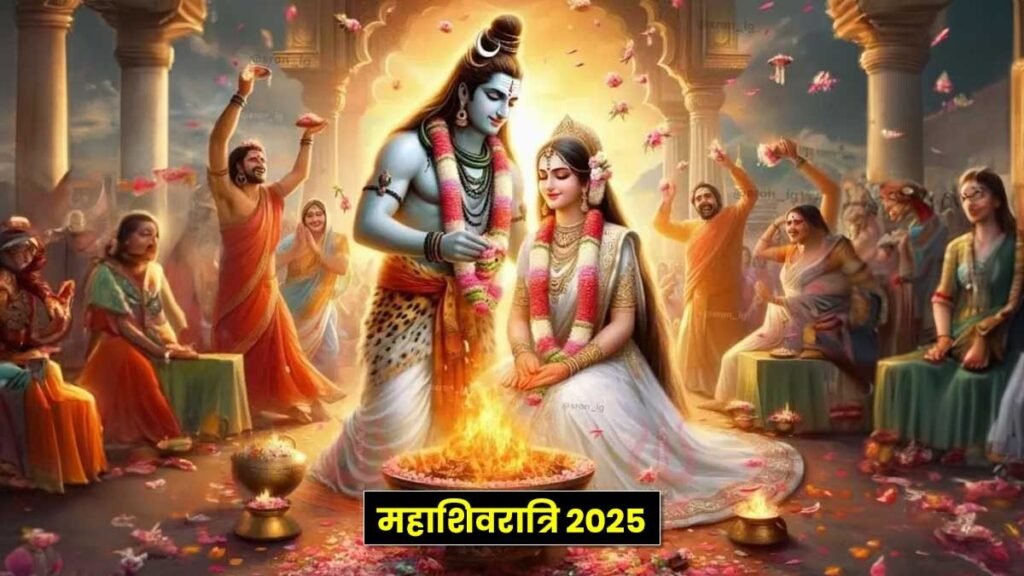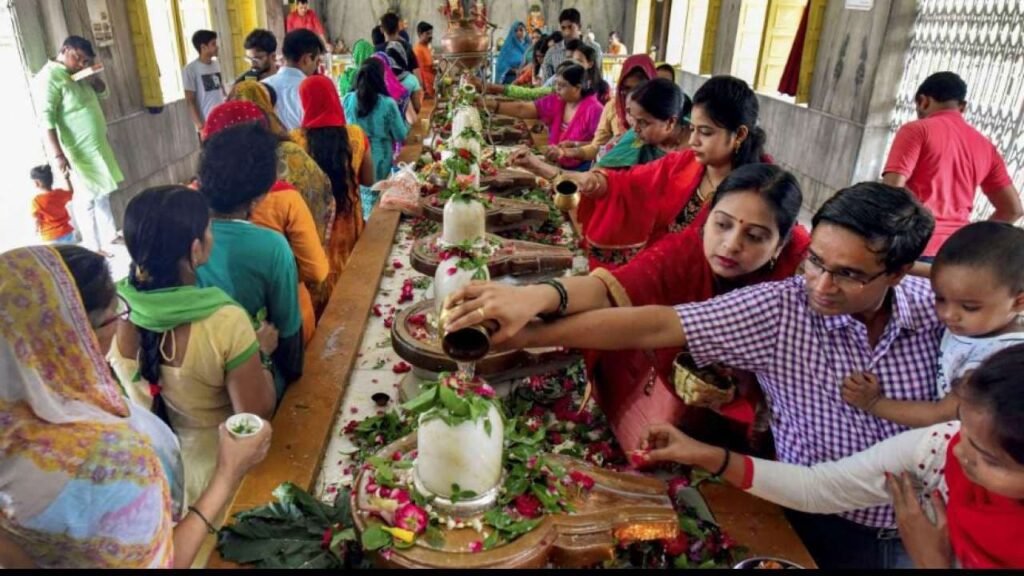
Maha Shivratri, the “Night of Shiva,” is a significant Hindu festival dedicated to Lord Shiva. In 2025, it will be observed on Wednesday, February 26. During this auspicious night, worshippers engage in rituals such as chanting mantras, meditating, and performing a special puja at home or in temples. Many devotees fast, sometimes entirely, or opt for a light diet consisting of fruits and milk. A key practice during Maha Shivratri is staying awake and engaged in spiritual activities throughout the night, which is divided into four prahars (watches).
Key Timings for Maha Shivratri 2025-
Chaturdashi Tithi: Begins at 11:08 AM on February 26 and ends at 8:54 AM on February 27.
Nishita Kaal Puja (Midnight Worship): From 12:09 AM to 12:59 AM on February 27.
Shivaratri Parana (Breaking the Fast): Between 6:48 AM and 8:54 AM on February 27.
Ratri Prahar Puja (Night Vigil): The night is divided into four prahars (watches), each with specific worship times:
First Prahar: 6:19 PM to 9:26 PM on February 26
Second Prahar: 9:26 PM on February 26 to 12:34 AM on February 27
Third Prahar: 12:34 AM to 3:41 AM on February 27
Fourth Prahar: 3:41 AM to 6:48 AM on February 27
Significance of Maha Shivratri-

Maha Shivratri is observed to honor Lord Shiva and is believed to be the night when he performed the cosmic dance of creation, preservation, and destruction. Devotees engage in fasting, night-long vigils, and meditation to seek blessings and spiritual growth.
Celebrations in Guwahati, Assam-
In Guwahati, several temples and cultural organizations host special events during Maha Shivratri. Devotees can participate in night-long prayers, cultural programs, and community gatherings. It is advisable to check with local temples for specific schedules and events.
Observance Tips-
Fasting: Many devotees observe a fast, which can vary from consuming fruits and milk to complete fasting. It’s essential to stay hydrated and consult a healthcare professional if you have any health concerns.
Night Vigil: Staying awake during the night is considered auspicious. Engaging in prayers, chanting, and meditation can enhance the spiritual experience.
Visiting Temples: Participating in temple rituals and community prayers can be a fulfilling way to observe the festival.
Maha Shivratri offers an opportunity for spiritual reflection and connection with the divine. Whether observing at home or participating in community events, the festival is a time for devotion and renewal.
Significance of the Day-
Maha Shivratri holds deep symbolic meaning. It is believed that observing this night with dedication and devotion brings several spiritual benefits, such as removing past sins, gaining inner peace, and receiving Lord Shiva’s blessings. According to Hindu philosophy, Lord Shiva represents destruction and transformation, which are essential for the cycle of creation. By worshiping Lord Shiva on this night, devotees believe they can rid themselves of negativity, both in their lives and within themselves, and open the door to spiritual enlightenment.
In addition, Maha Shivratri is seen as a time to reflect on one’s life, meditate on Lord Shiva’s virtues, and seek divine wisdom. Lord Shiva is considered the ultimate yogi, the embodiment of meditation and peace, and through devotion on this day, people believe they can align themselves with the higher, more enlightened aspects of their own being.
The Fast and Its Importance-

Fasting on Maha Shivratri is an essential aspect of the festival. It is believed that fasting purifies the mind, body, and soul, enabling one to detach from worldly pleasures and focus entirely on the divine. People often eat only fruits, milk, and light food during the day and avoid consuming grains, onions, and garlic. This fast is believed to cleanse the soul and is an offering to Lord Shiva. It is also thought to help devotees in their spiritual journey, allowing them to break free from material attachments and foster a deeper connection with the divine.
Observance and Worship at Temples-
Maha Shivratri is celebrated in temples dedicated to Lord Shiva across India, with some of the most famous celebrations taking place at temples like Varanasi’s Kashi Vishwanath Temple, Somnath Temple in Gujarat, and the Mahakaleshwar Temple in Ujjain. Devotees from all over the country gather at these temples to perform night-long pujas and participate in cultural events that coincide with the occasion. Special processions and rituals are also held, with a focus on devotion and community participation. In regions like Gujarat and Maharashtra, cultural programs, bhajans (devotional songs), and dhol (drums) play an essential role in the celebrations. Temples often stay open throughout the night, offering a space for people to gather and engage in spiritual activities.
Breaking the Fast-
The fast concludes the following morning, with devotees breaking their fast after completing the last prahar. This moment is symbolically significant as it marks the end of the night’s devotion and the beginning of a new day filled with blessings and spiritual renewal. The morning prayers, known as Shivaratri Parana, include offerings of food and water to Lord Shiva, as well as chanting mantras and prayers for prosperity, happiness, and health.

